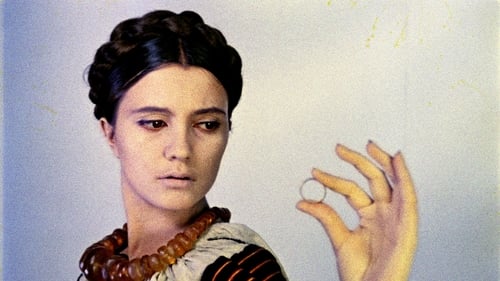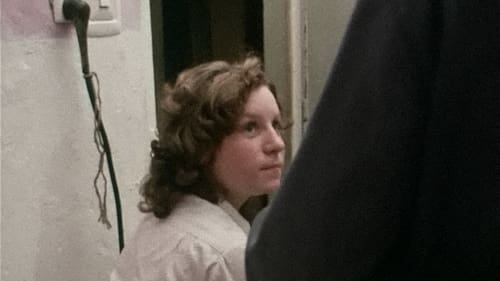Opening Speech (1961)
ジャンル : アニメーション, コメディ
上映時間 : 7分
演出 : Norman McLaren
シノプシス
Norman McLaren attempts to give the opening speech for the first Montreal International Film Festival, but his microphone won't cooperate.

Animation featuring dancing black and white shadows.

In this short film by Norman McLaren, dancers enact the Greek tragedy of Narcissus, the beautiful youth whose excessive self-love condemned him to a trapped existence. Skilfully merging film, dance and music, the film is a compendium of the techniques McLaren acquired over a lifetime of experimentation.

Roy Andersson's short movies focus on working class and youth daily life, capturing and portraying a small slice of his characters' day.

Clever and mildly entertaining short from Plympton shows us the point of view of a tree throughout its life. The film gives us various vignettes dealing mostly with sex and violence.

Despite the fact that the film is a documentary, its lead character and his life story are fictitious, though very probable. It is one of the best examples of creative documentary film-making of Wojciech Wiszniewski.

Parajanov's collage of all the footage that remained from his film "Kyiv Frescoes," which was halted by the authorities who demanded that all the negatives be destroyed.

The title of this twenty-minute video by Jean-Luc Godard and Anne-Marie Miéville, “Freedom and Fatherland,” is the official slogan of the Canton de Vaud, in Switzerland, where the filmmakers live and grew up. To fulfill their commission from a Swiss cultural festival, they adapted a great Swiss novel, “Aimé Pache, Painter from the Vaud,” by Charles Ferdinand Ramuz, from 1911 (about a local artist who goes to Paris for his education and then returns home) and extruded its autobiographical analogies to Godard’s own life and work. Using a choice set of clips from Godard’s films to coincide with events from the painter’s life, verbal references to modern times and to Godard’s own—Sartre, the late nineteen-sixties, the cinema—and images of the Swiss terrain, which plays a decisive role in the work of Pache, Godard, and Miéville (an important filmmaker in her own right), they produce the effect of mirrors within mirrors.

This remarkable companion piece to In the City of Sylvia offers a compendium of images recorded by Guerín in Strasbourg while searching for the traces of a (fictional?) brief encounter some years earlier with a young woman named Sylvia.

A color cocktail by Norman McLaren and Evelyn Lambart, translating into moving patterns of color and light the moods of music written for a jazz ensemble by Eldon Rathburn. Inscribed and colored directly on film.

This three-part ballad, which often uses music to stand in for dialogue, remains the most perfect embodiment of Nemec’s vision of a film world independent of reality. Mounting a defense of timid, inhibited, clumsy, and unsuccessful individuals, the three protagonists are a complete antithesis of the industrious heroes of socialist aesthetics. Martyrs of Love cemented Nemec’s reputation as the kind of unrestrained nonconformist the Communist establishment considered the most dangerous to their ideology.

The first Wojciech J. Has (Saragossa manuscript) short film. Very simple and touching story about a boy who dreams about buying an accordion.

A surreal journey of a displaced spirit as he wanders in the interminable darkness through the temporal landscape of a quaint and isolated feudal-era fishing village. Guided by a series of faintly illuminated rooms, the wandering spirit comes upon ancient souls who take on physical forms as they recount their personal stories of daily existence, loss, and tragedy in the peasant community. Intrigued by his initial visit to a curiously distracted elderly woman, the spirit returns to her home in order to ask a fundamental question - "What is happiness?" - an existential query that is innocently answered with innate humility and accepted unknowingness.

Animated photographs (made with Jan Lenica) with elements of animated cartoon. A display of military drill.

A man sets a ping-pong ball into motion and it becomes fruitful and multiplies.

An experiment in pure design by film artists Norman McLaren and Evelyn Lambart. Lines, ruled directly on film, move with precision and grace against a background of changing colors, in response to music specially composed for the films.

A portrait of a traveling circus.

A student is visited in his university lodgings by his critical parents.

After the doctor's refusal to perform abortion on a 17-year old girl, she and her boyfriend have to cope with the new situation. They both need to learn to take responsibility for their decisions, in spite of numerous hardships facing them.

Paper cutouts over images of mixed colorful liquids, creating hypnotizing swirls and aesthetic explosions, as well as combining original and futurological sounds. Starting with the relentless hunting of antelopes, the geometric cutouts show the constant struggle between the warring groups. We have been observing it since the primeval times, when the tools of the battles were arches and spears, through the times of the domination of swords, later replaced by firearms. The increasing automation and power of war machines, the emergence of tanks and aircraft, eventually the use of weapons of mass destruction lead to total annihilation

One day, Saturday October 5th, in a mans life.







